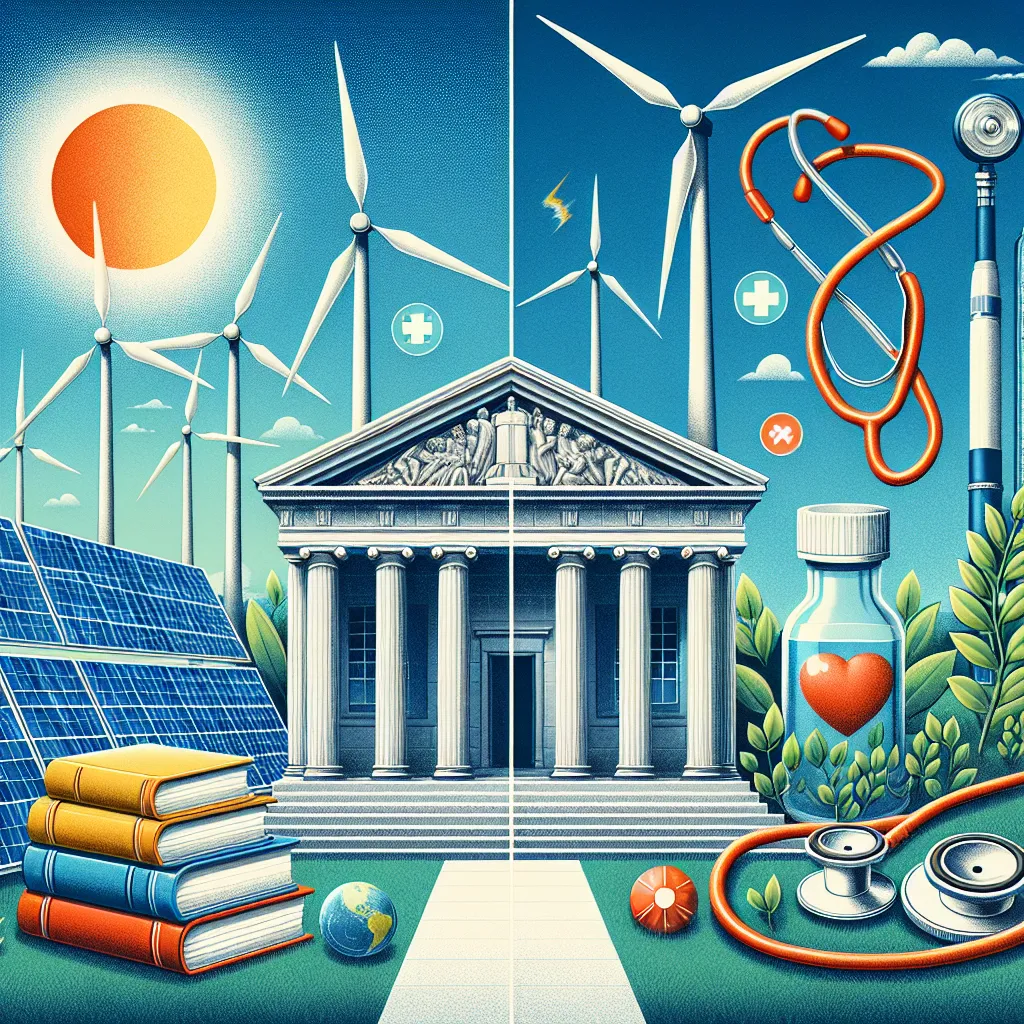Renewable energy is a hot topic in IELTS Writing Task 2, appearing frequently in recent years. Its relevance to global environmental issues makes it a prime candidate for future exams. Let’s explore some past questions and create a sample essay on this crucial subject.
Analyzing the Topic
The theme “why renewable energy is the future” often appears in IELTS Writing Task 2 questions related to environment, technology, and government policies. Based on trends from previous exams, we can expect questions that ask about:
- The advantages and disadvantages of renewable energy
- Government’s role in promoting renewable energy
- The impact of renewable energy on the economy and environment
Let’s focus on a question that combines these elements:
Some people believe that the government should invest heavily in renewable energy sources to combat climate change, while others argue that this money could be better spent elsewhere. Discuss both views and give your own opinion.
Analyzing the Question
This question requires you to:
- Discuss arguments for government investment in renewable energy
- Present opposing views on alternative spending priorities
- Provide your personal opinion on the issue
Remember to address all parts of the question and maintain a balanced approach throughout your essay.
 Government Investment in Renewable Energy
Government Investment in Renewable Energy
Sample Essays
Band 7-8 Essay
Climate change is one of the most pressing issues of our time, and the debate over how to address it has intensified in recent years. While some advocate for substantial government investment in renewable energy as a solution, others argue that these funds could be more effectively allocated elsewhere. This essay will examine both perspectives before presenting my own view on this complex matter.
Proponents of government investment in renewable energy sources argue that this approach is crucial for combating climate change effectively. They contend that significant funding is necessary to develop and implement clean energy technologies on a large scale, which could dramatically reduce greenhouse gas emissions. Furthermore, they believe that government backing would accelerate the transition to a sustainable energy future, creating new jobs and stimulating economic growth in the green sector. Countries like Germany and Denmark have demonstrated the potential success of this strategy, with renewable energy now forming a substantial part of their power generation.
On the other hand, critics of this approach argue that there are more pressing issues that require government funding. They point to areas such as healthcare, education, and infrastructure as being in dire need of investment. These skeptics contend that the private sector is better equipped to drive innovation in renewable energy technologies, and that government funds would be more efficiently used in addressing immediate social needs. Additionally, they argue that the intermittent nature of some renewable sources, such as wind and solar, makes them unreliable as primary energy sources without significant advancements in storage technology.
In my opinion, while there are valid arguments on both sides, I believe that government investment in renewable energy is crucial for our future. The urgency of the climate crisis demands immediate and decisive action, which can be most effectively mobilized through government intervention. Private sector innovation is important, but it often prioritizes short-term profits over long-term sustainability. Government funding can bridge this gap, supporting research and development that may not be immediately profitable but is essential for our planet’s future.
Moreover, I believe that investing in renewable energy does not necessarily mean neglecting other important areas. A well-planned transition to clean energy can create jobs, improve public health by reducing pollution, and ultimately lead to energy independence, which has both economic and geopolitical benefits. These positive outcomes can indirectly support other sectors like healthcare and education.
In conclusion, while the debate over government spending priorities is complex, the existential threat posed by climate change makes investment in renewable energy not just advisable, but essential. By taking a leading role in this transition, governments can pave the way for a sustainable and prosperous future that benefits all sectors of society.
(Word count: 418)
Band 6-7 Essay
The question of whether governments should invest heavily in renewable energy or spend money on other areas is a topic of much debate. This essay will discuss both sides of the argument and give my opinion.
Those who support government investment in renewable energy say it is important for fighting climate change. They believe that spending money on things like solar and wind power will help reduce pollution and create a cleaner environment. Also, they think it can create new jobs in the green energy sector, which is good for the economy. Some countries have already shown that this can work well.
On the other hand, people against this idea argue that there are other important things the government should spend money on. They say that areas like healthcare, education, and roads need more funding. These people believe that private companies should develop renewable energy, not the government. They also point out that some renewable energy sources, like wind and solar, don’t always produce power consistently.
In my opinion, I think the government should invest in renewable energy, but not forget about other important areas. Climate change is a big problem that needs to be dealt with quickly. Government support can help make renewable energy more common and affordable. This can lead to less pollution and better health for people.
However, I also believe that the government should continue to fund other important areas. A balanced approach is necessary. By investing in renewable energy, we can create new jobs and maybe even save money in the long run, which could help fund other sectors like education and healthcare.
In conclusion, while there are good arguments on both sides, I believe that government investment in renewable energy is necessary for our future. It’s possible to focus on this important issue while still addressing other needs in society.
(Word count: 309)
Writing Tips
When addressing this topic, consider the following:
-
Vocabulary: Use a range of vocabulary related to energy and the environment. For band 7-8, incorporate more sophisticated terms and phrases. For band 6-7, focus on clear, correct usage of common terms.
-
Grammar: For higher bands, use a variety of complex structures. For band 6-7, ensure correct use of simpler structures with some attempts at more complex ones.
-
Coherence and Cohesion: Both essays should have a clear structure, but higher band essays should use more sophisticated linking words and phrases.
-
Task Response: Ensure you address all parts of the question. Higher band essays should provide more nuanced arguments and a clearer personal opinion.
-
Examples: Use specific examples to support your points. Higher band essays should include more detailed and relevant examples.
Key Vocabulary
Here are some important terms related to this topic:
-
Renewable energy (noun) /rɪˈnjuːəbəl ˈenədʒi/: Energy from a source that is not depleted when used.
-
Sustainable (adjective) /səˈsteɪnəbəl/: Able to be maintained at a certain rate or level.
-
Climate change (noun) /ˈklaɪmət tʃeɪndʒ/: Long-term changes in temperature and weather patterns.
-
Greenhouse gas emissions (noun) /ˈɡriːnhaʊs ɡæs ɪˈmɪʃənz/: Gases that trap heat in the Earth’s atmosphere.
-
Infrastructure (noun) /ˈɪnfrəstrʌktʃə(r)/: Basic physical and organizational structures needed for the operation of a society or enterprise.
-
Intermittent (adjective) /ˌɪntəˈmɪtənt/: Occurring at irregular intervals; not continuous or steady.
-
Innovation (noun) /ˌɪnəˈveɪʃn/: A new method, idea, product, etc.
-
Transition (noun) /trænˈzɪʃn/: The process or period of changing from one state or condition to another.
Conclusion
The topic of renewable energy and its role in our future is likely to remain relevant in IELTS Writing Task 2. To prepare, practice writing essays on related themes such as:
- The role of individuals in promoting renewable energy use
- The impact of renewable energy on job markets
- Balancing economic growth with environmental protection
- The challenges of implementing renewable energy in developing countries
Remember to stay informed about current events and developments in renewable energy to provide up-to-date examples in your essays.


